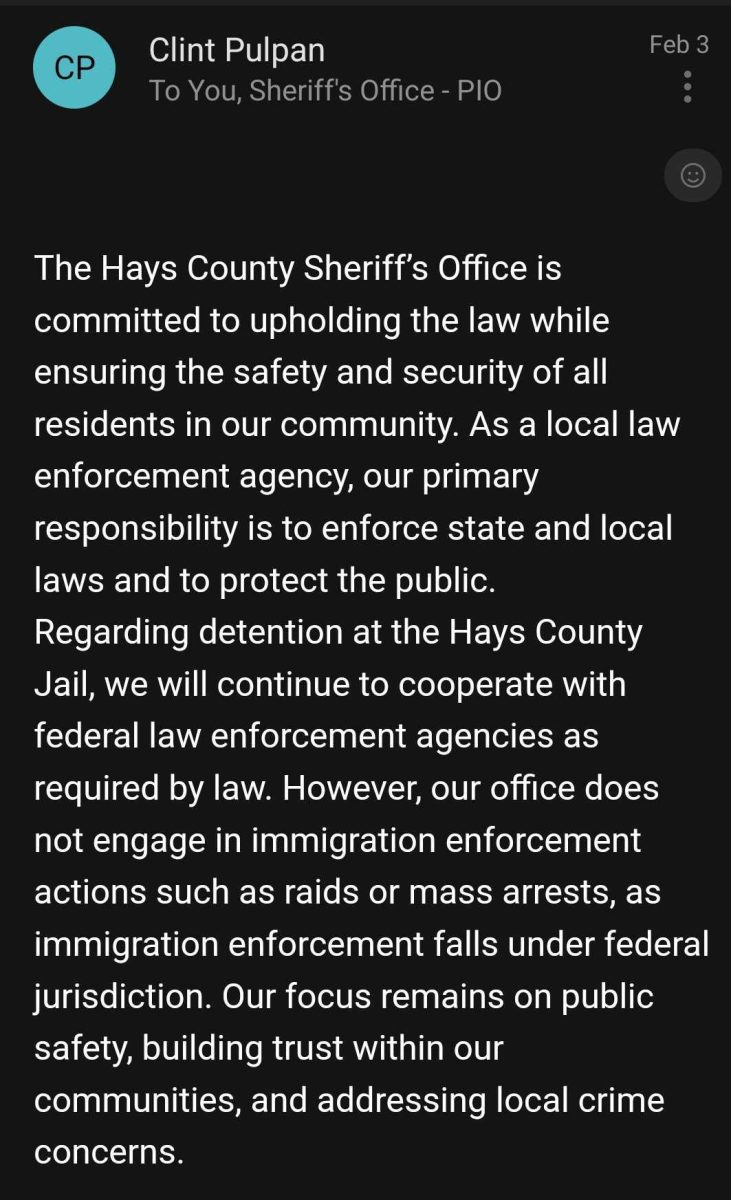Despite a spike in discrimination complaints alleging racist and derogatory remarks supposedly made by faculty members, no sanctions have been found in cases during the last three years.
As of yet, none of the 11 complaints filed to the Office of Equity and Access between August 2015 and May 2018 have been found in violation of university policy. Eight of the 11 were filed in the 2017-18 school year, marking a significant uptick from the previous school year.
According to the Office of Equity and Access, five are still ongoing investigations with no final resolution to date, one was determined to be unsubstantiated, one case was placed on hold and four were found to have insufficient evidence to support an investigation.
No completed investigations have been found in violation of the university’s police, which forbids discrimination and harassment under Section 02.01b of the Affirmative Action/Recruitment Plan:
“Identify and eliminate employment practices and institutional policies that illegally discriminate against persons on the basis of race, color, national origin, age, sex, religion, disability, veterans’ status, sexual orientation, gender identity, and gender expression. Equal employment opportunities (EEO) shall include: personnel transactions of recruitment, employment, training, upgrading, promotion, demotion, layoffs (reduction in force), termination, and salary.”
Sabrina Chapa, environmental and resource management senior, filed their case Jan. 28 after a professor allegedly made discriminatory remarks while pointing to minority students during class.
Chapa was taking a capstone course in spring 2018 when geography professor Richard Earl allegedly said multiple racist statements in class. Earl declined to comment to The University Star, but the report states Earl acknowledges he made a comment on incarcerating employers of undocumented immigrants in a “discussion about the hypocrisy of many people in thinking about immigration.”
“Anyone who hires undocumented people should be incarcerated if you ask me. I think the President of this university, Trauth, needs to be incarcerated,” Earl said, according to Chapa’s recantation in the report.
An unnamed witness in the report confirms Earl made statements on race, height and immigration but was not concerned beyond the fact that Earl would, at times, make statements irrelevant to class.
The report includes two additional quotes Chapa alleges Earl made:
“Mexicans in Mexico eat unhealthy diets and they are shorter because of lack of nutrients,” the report states. “I can tell what workers are undocumented because Hispanics who were born here and have their documents, residents, are taller because we have healthier diets here. That’s a fact.”
After confronting Earl about the issue in person after class, Earl responded to Chapa via email and told them that their views are not reflected by the campus majority.
“I thought that I pretty clearly stated that I was talking about sensitive issues,” Earl stated in the email to Chapa. “And, as you know, the immigration issues is a volatile and complex matter. You may find this hard to believe, but there probably are people in this class who 100% support Trump on that matter. I hope you realize that your strong feelings about that issue are not held by a large segment of the student population. If you knew my background, you would realize that I am very sensitive about racial matters—I am human and I do make mistakes, but long ago, my thinking on racial matters has been shaped by the reality that no one chose what they were born, where they were born or when they were born.”
Chapa proceeded to file a discrimination complaint with the Office of Equity and Access and a copy was sent to Earl. Chapa continued to attend Earl’s class after filing the report and said they were uncomfortable because of Earl’s knowledge of the allegations. Two weeks before the end of the spring semester, 87 days after their report was filed, the Office of Equity and Access completed the investigation and found no evidence discrimination had occurred. The investigator, Ronda Brown, who no longer works at the university, told Chapa there was no evidence substantiating differential treatment in the case that would put students at a disadvantage.
“Investigator explained to Complainant that the standard for determining discriminatory conduct is whether one person has treated another person in a different way so as to disadvantage that person because of their membership in a protected class,” the report stated.
Alberto Giordano, geography department chair, declined to comment to The University Star. Giordano cited no knowledge of the situation past Equity and Access’ findings, despite being named an expert witness in the investigation report.
Upon submission of a discrimination complaint and evaluation of violations of the university’s policy, the director of the Office of Equity and Access assigns the case to one of two primary investigators employed at the university. At the time of Chapa’s investigation, Vincent Luizzi was the interim director. Now, Ameerah McBride has been hired as the full time chief diversity office and director of the Office of Equity and Access.
If the case is more than 50 percent likely to have happened, sanctions are to be placed. These sanctions imposed by a supervisor can range anywhere from a verbal warning to termination, dismissal or cancellation of contract.
“What individuals think is discrimination is not necessarily discrimination by university policy,” McBride said. “If a formal complaint is filed, the person is probably going to be found not in violation of the policy. It would probably be more beneficial to go through informal resolution (such as mediation) to come to a mutual agreement.”
“I feel as if Texas State did not (take my complaint) seriously,” Chapa said. “Anything to do with pro-whiteness, (the university) acts as if time will heal it. Anything anti-white is a big deal and has harsher punishments. It shows there is definitely a double-standard when it comes to race at Texas State.”
Retaliation is forbidden against any person who files a discrimination complaint, participates in an investigation or opposes discrimination. McBride said if an individual is experiencing retaliation as a result of a report being filed, Equity and Access should be notified of the adverse action.
“I started at the university May 23, so all the new changes (we are implementing) came with me,” McBride said. “I can’t speak to what happened before I arrived here, but the new way we are processing complaints is after Ameerah.”
Discrimination complaints can be filed with the Office of Equity and Access.
Categories:
Equity and Access reports uptick of discrimination complaints, no sanctions
September 27, 2018
0
Donate to The University Star
Your donation will support the student journalists of Texas State University. Your contribution will allow us to purchase equipment and cover our annual website hosting costs.
More to Discover















